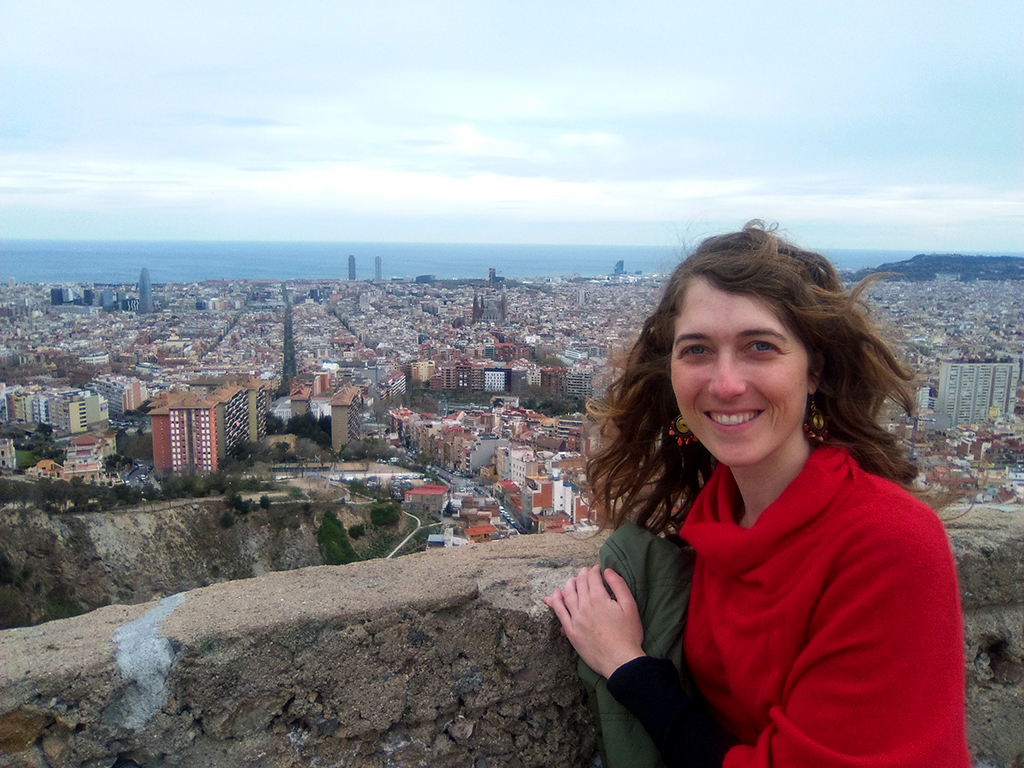Estela Mariné holds a bachelor’s degree in Humanities from the UOC and a European PhD in Tourism and Leisure from Rovira i Virgili University (URV). She teaches at different universities, including the UOC, and has just won the Medalla del Turisme de Catalunya for the best knowledge and research project in the tourism sector, awarded by the Government of Catalonia.
What was the subject of your project that won the Medalla del Turisme?
The project analyses the three sources of information (autonomous, organic and induced) that help to build the image and identity of a tourist destination, in this case, of Catalonia. First, we analysed French and German travel guides about the Catalan coast published over a period of more than 100 years. We then looked at big data based on content generated by visitors and official destination managers. And finally, we measured the contrast between the three sources.
What did this recognition mean to you?
When I received the call from the Government of Catalonia to tell me I'd won the Medalla del Turisme, I couldn't believe it! When I started my research with the help of my mentor, Dr Salvador Anton Clavé, full professor at the URV, I couldn't have imagined we would come this far. For a researcher, receiving the highest tourism award in Catalonia is a dream come true.
How is technology transforming the tourism sector?
The use of ICTs in parallel with social media has helped the spectacular growth of online user-generated content (UGC). In the field of tourism, it was first travel blogs and then travel reviews. For example, in 2008, TripAdvisor had 10 million user opinions; it now has over 700 million. In addition to UGC, new technologies such as geolocalization, QR codes, mobile apps, and virtual and augmented reality have revolutionized the sector. Intermediation has also been affected with the emergence of specialized browsers for finding the best travel and accommodation offers, as well as websites that help you book online.
Is the sector ready to make the most of the data created by millions of tourists?
The sector is evolving; in the past they had to extract tourists' opinions and expectations from hundreds of surveys, but now we have access to hundreds of thousands of visitors' opinions, which are spontaneous and freely available online. But these travel blogs and reviews also contain unstructured information. The challenge lies in cultivating the computerized textual analysis of experiences, opinions and feelings. Luckily, hardware and software have greatly improved in recent years. For example, we managed to analyse 25,000 opinions in 2013 and at the end of next January at the international conference ENTER 2019, we will present a research project where we analyse a million opinions written in English.
In Barcelona, for example, what have you found to be the hottest topics for tourists on social media?
The work of architect Antoni Gaudí is the most popular search. The Gothic Quarter and Camp Nou are also among the top rankings. However, the Sagrada Família has always been rated highest, especially for tourists from overseas such as Americans, Australians, Canadians and Japanese.
Which nationalities are most critical?
The vast majority of comments about Barcelona are very positive. Gaudí's work and Barcelona tourist routes or guided tour companies receive the highest ratings. In terms of nationalities, we have seen that foreigners, and especially Americans, rank more highly than the Spanish. The most noticeable complaints are about queues and crowds at “hotspots" such as the Sagrada Família.
Where is there still room for improvement?
We need to make some disgruntled Barcelona residents see that visitors to the city are not their enemies. I will never forget that, on a self-organized tour of Japan, we marvelled at the great friendliness of the locals guiding us and solving problems despite the language difficulties. However, this doesn't mean that destination managers shouldn't implement policies to ensure that local residents are disturbed as little as possible.
What do you value most about your teaching work?
The most satisfying aspect is watching my students thrive and earn excellent qualifications. For example, the first draft of a final master's degree project is usually quite weak even though the student has quite an interesting subject. With recommendations and suggestions, the work improves in subsequent drafts until achieving a level that allows them to satisfactorily defend the final master's degree project before the assessment committee.
Is it easy to combine teaching with your research?
It's not easy, but teaching and research have a lot in common. Teaching preparation enables you to acquire new knowledge that can be applied to research and vice versa. What I like most is teaching and what I find most difficult are the management tasks, but I appreciate that they are necessary.
As a course instructor, what advice do you give your students who have to do the final project for the master's degree in Sustainable Tourism and ICT?
First, they have to understand that the final master's degree project is not just another course. It's about making a significant contribution to the field of sustainable tourism and ICT and, therefore, requires great dedication. Moreover, as it is a scientific document, it has to follow international standards on content, structure and format for scientific publications.

